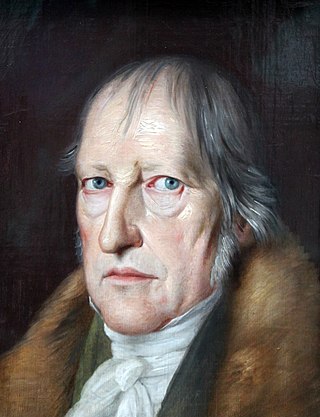
Georg Wilhelm Friedrich Hegel was a German philosopher and one of the most influential figures of German idealism and 19th-century philosophy. His influence extends across the entire range of contemporary philosophical topics, from metaphysical issues in epistemology and ontology, to political philosophy, the philosophy of history, philosophy of art, philosophy of religion, and the history of philosophy.
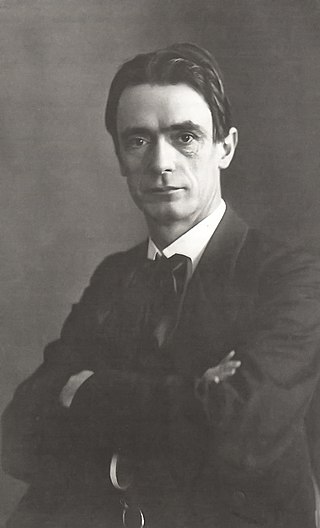
Rudolf Joseph Lorenz Steiner was an Austrian occultist, social reformer, architect, esotericist, and claimed clairvoyant. Steiner gained initial recognition at the end of the nineteenth century as a literary critic and published works including The Philosophy of Freedom. At the beginning of the twentieth century he founded an esoteric spiritual movement, anthroposophy, with roots in German idealist philosophy and theosophy. His teachings are influenced by Christian Gnosticism. Many of his ideas are pseudoscientific. He was also prone to pseudohistory.

Rudolf Carnap was a German-language philosopher who was active in Europe before 1935 and in the United States thereafter. He was a major member of the Vienna Circle and an advocate of logical positivism.

Rudolf Christoph Eucken was a German philosopher. He received the 1908 Nobel Prize in Literature "in recognition of his earnest search for truth, his penetrating power of thought, his wide range of vision, and the warmth and strength in presentation with which in his numerous works he has vindicated and developed an idealistic philosophy of life", after he had been nominated by a member of the Swedish Academy.

Aurich is a town in the East Frisian region of Lower Saxony, Germany. It is the capital of the district of Aurich and is the second largest City in East Frisia, both in population, after Emden, and in area, after Wittmund.
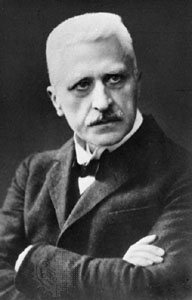
Rudolf Otto was an eminent German Lutheran theologian, philosopher, and comparative religionist. He is regarded as one of the most influential scholars of religion in the early twentieth century and is best known for his concept of the numinous, a profound emotional experience he argued was at the heart of the world's religions. While his work started in the domain of liberal Christian theology, its main thrust was always apologetical, seeking to defend religion against naturalist critiques. Otto eventually came to conceive of his work as part of a science of religion, which was divided into the philosophy of religion, the history of religion, and the psychology of religion.

Wilhelm Dilthey was a German historian, psychologist, sociologist, and hermeneutic philosopher, who held G. W. F. Hegel's Chair in Philosophy at the University of Berlin. As a polymathic philosopher, working in a modern research university, Dilthey's research interests revolved around questions of scientific methodology, historical evidence and history's status as a science. He could be considered an empiricist, in contrast to the idealism prevalent in Germany at the time, but his account of what constitutes the empirical and experiential differs from British empiricism and positivism in its central epistemological and ontological assumptions, which are drawn from German literary and philosophical traditions.

Max Ferdinand Scheler was a German philosopher known for his work in phenomenology, ethics, and philosophical anthropology. Considered in his lifetime one of the most prominent German philosophers, Scheler developed the philosophical method of Edmund Husserl, the founder of phenomenology. Given that school's utopian ambitions of re-founding all of human knowledge, Scheler was nicknamed the "Adam of the philosophical paradise" by José Ortega y Gasset.

Walter Eucken was a German economist of the Freiburg school and father of ordoliberalism. He is closely linked with the development of the concept of "social market economy".
The Freiburg school is a school of economic thought founded in the 1930s at the University of Freiburg.

Gustav Teichmüller was a German philosopher. His works, particularly his notion of perspectivism, influenced Friedrich Nietzsche's philosophy.
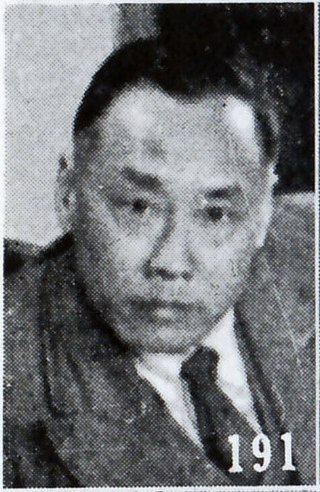
Carsun Chang, also known as Chang Chun-mai or Carson Chang, was a prominent Chinese philosopher, public intellectual and political figure. Carsun Chang was a social democratic politician.
1926 in philosophy
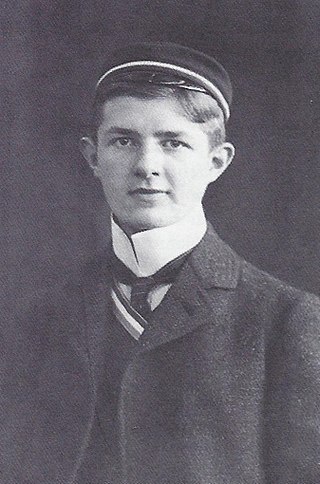
Arnold Thomas Eucken was a German chemist and physicist. He examined the energy states of the Hydrogen atom and contributed to knowledge of the atomic structure. He also contributed to chemical engineering and process control through physical chemistry measurements for applications in industry.
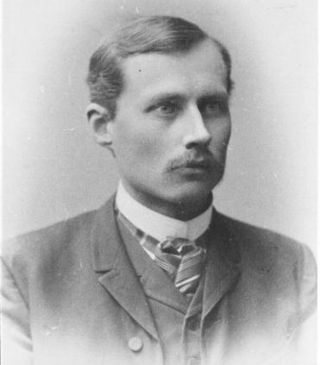
Arvid (Arvi) Grotenfelt, was a Finnish philosopher and psychologist.
William Ralph Boyce Gibson was a British-Australian philosopher. He was an advocate of personal idealism.
Meyrick Booth B.Sc., Ph.D., (1883–1968) was a British educational psychologist.
1901 in philosophy
Edith Eucken-Erdsiek was a German philosopher and writer.

The 1908 Nobel Prize in Literature was awarded to the German philosopher Rudolf Christoph Eucken (1846–1926) "in recognition of his earnest search for truth, his penetrating power of thought, his wide range of vision, and the warmth and strength in presentation with which in his numerous works he has vindicated and developed an idealistic philosophy of life." He is the second German to be awarded the prize and the first philosopher to be a recipient.